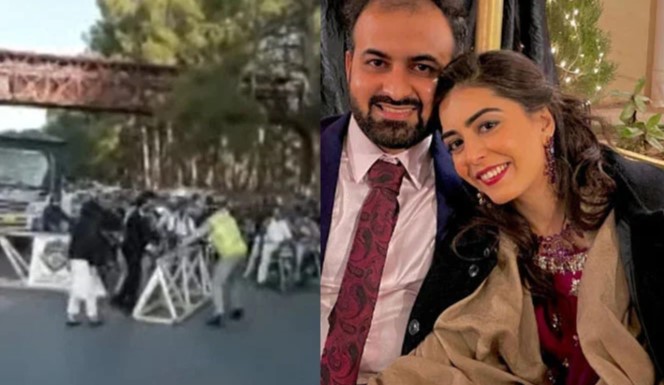The recent detention of human rights lawyer Imaan Mazari and her husband, Hadi Ali, on charges linked to terrorism has sparked renewed debates around due process, proportionality in law enforcement, and the precarious landscape for activists in Pakistan. Amnesty International and the Human Rights Commission of Pakistan (HRCP) are voicing concerns that this incident highlights a pattern of using anti-terrorism laws in situations where the charges may appear disproportionate, further restricting freedoms in the public sphere.
At the core of the controversy is the argument that the charges – particularly invoking terrorism laws – appear excessive given the allegations: a video surfaced of Mazari and Ali moving road barriers, reportedly to clear a traffic path, which authorities argue posed a “security risk” during an international cricket event. Amnesty calls this action “disproportionate,” stressing it reflects misuse of anti-terrorism measures that risk undermining Pakistan’s commitment to human rights.
The specifics of the incident bring to light broader concerns about the overreach of Pakistan’s Anti-Terrorism Act (ATA). Designed to address significant security threats, ATA is increasingly being applied in cases involving civil protests or minor infractions, often against activists, journalists, or dissenters. Amnesty’s remarks underscore how such actions erode legal boundaries and set precedents that blur distinctions between political dissent and actual threats to national security.
A look into recent history reveals a pattern of challenges faced by Mazari and other activists in Pakistan. In 2023, Mazari was detained over a speech at a rally for the Pashtun Tahaffuz Movement, which similarly resulted in terrorism charges. Her case reflects the shifting boundaries of activism in Pakistan, where public demonstrations and expressions of dissent, increasingly tied to issues of ethnic and political rights, frequently result in legal repercussions under the banner of national security.
This case has also underscored tensions within Pakistan’s judicial and political institutions. Legal experts and rights advocates argue that the frequent application of terrorism-related charges for non-violent incidents dilutes the seriousness of actual terrorism cases and sows public distrust. More critically, the ambiguity in the allegations against Mazari and Ali could signify a tightening space for lawful political participation and protest.
Observers stress that Pakistan’s legal system must recalibrate its response to civil rights cases to align with international human rights commitments. As the HRCP noted, the continued targeting of figures like Mazari may deter other activists, ultimately constricting open discourse and lawful assembly.
While the immediate outcome for Mazari and Ali is pending, the case serves as a focal point for larger, ongoing debates over the state’s response to dissent and the future of human rights protections in Pakistan. For citizens and activists alike, it raises pressing questions about the balance between security and freedom, highlighting a need for legal reforms to better safeguard due process and prevent the erosion of civil liberties in Pakistan.




